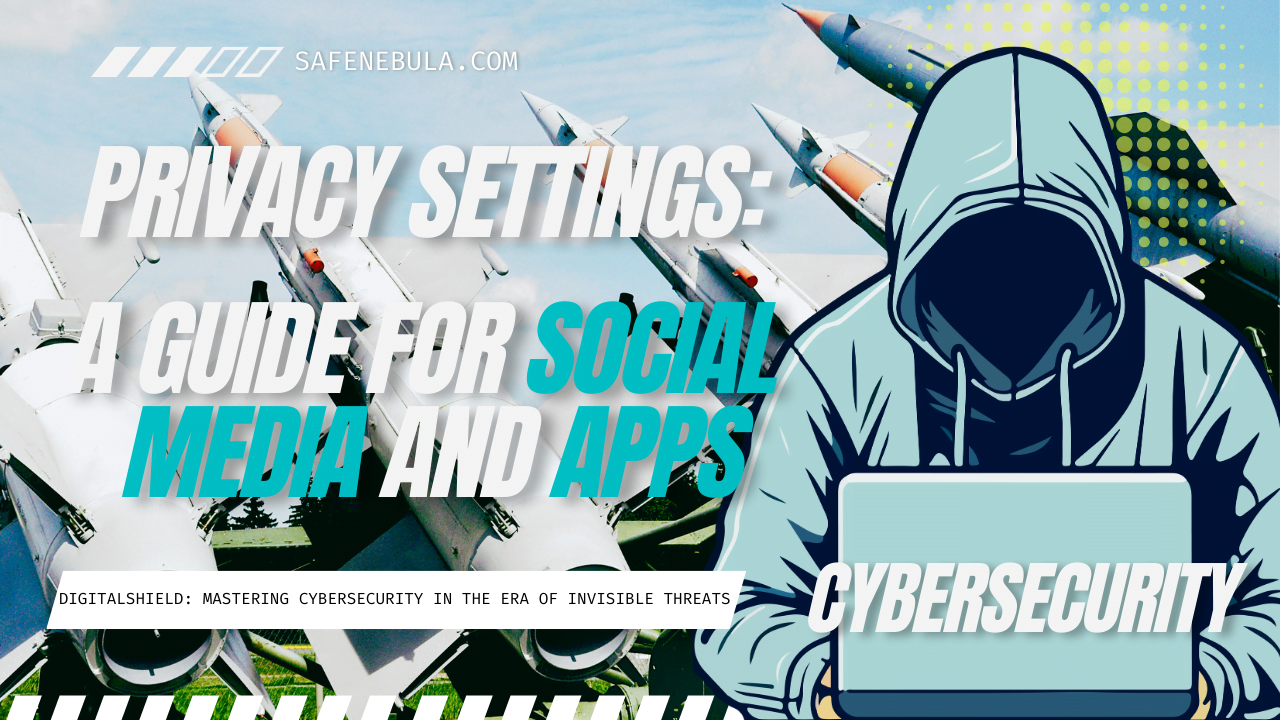In today’s digital age, social media and apps have become integral to our daily lives, connecting us with friends, family, and the world.
However, these platforms also raise significant privacy concerns, making it crucial to understand and manage your privacy settings effectively.
This guide will help beginners navigate the privacy settings on popular social media platforms and apps, emphasizing the importance of controlling what’s shared online.

The Importance of Privacy Settings
Privacy settings allow you to control who can see your information and what data is collected about you. Properly managing these settings helps protect your personal information from unwanted exposure and reduces the risk of identity theft, cyberstalking, and other digital threats.
General Tips for Managing Privacy Settings
- Review Your Privacy Settings Regularly: Social media platforms and apps often update their privacy policies and settings. Regularly check your settings to ensure they still meet your privacy needs.
- Limit Personal Information: Be cautious about the amount of personal information you share. Consider what is necessary and what could potentially expose you to risk.
- Understand Default Settings: Many platforms have default settings that may share your information more broadly than you might prefer. Take the time to adjust these to your comfort level.
Navigating Privacy Settings on Popular Platforms

Facebook:
- Access privacy settings by clicking the dropdown arrow in the top right corner and selecting “Settings & Privacy” > “Privacy Checkup.”
- Use the “Privacy Checkup” tool to review who can see your posts, profile information, and how to keep your account secure.
Twitter(X):
- Go to “Settings and Privacy” from your profile icon dropdown menu.
- Adjust who can see your tweets, who can tag you in photos, and your location settings under the “Privacy and safety” section.
Instagram:
- Tap the hamburger icon in the top right of your profile, then select “Settings” > “Privacy.”
- Here, you can manage your account privacy, story and post sharing, and comments settings.
TikTok:
- Go to “Privacy and Safety” under your account settings.
- Control who can see your videos, send you messages, and react to your posts.
WhatsApp:
- Tap “Settings” > “Account” > “Privacy.”
- Adjust who can see your “Last seen,” profile photo, “About” information, and status updates.
Using App Permissions Wisely
Apps request permissions to access various features on your device, such as your camera, microphone, location, and contacts. Be mindful of which permissions you grant:
- Review Permissions: Before downloading an app, review the permissions it requests. Consider whether they are necessary for the app’s functionality.
- Deny Unnecessary Permissions: If an app asks for permissions that don’t seem relevant to its function, consider denying those permissions or finding an alternative app.
Conclusion
Managing your privacy settings on social media and apps is essential to safeguarding your online presence. By taking control of these settings, you can enjoy the benefits of these platforms while minimizing privacy risks. Remember, the key to digital privacy is awareness and proactive management of your data.
